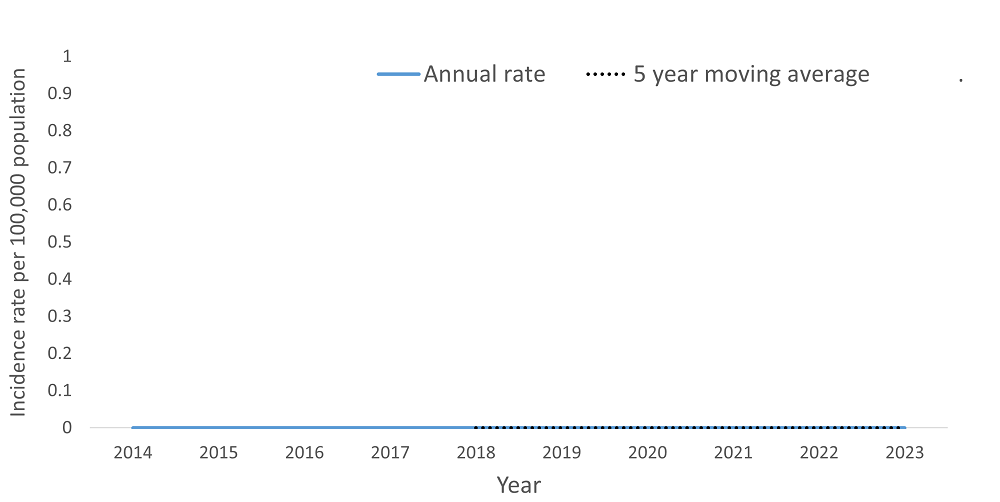Tetanus (lockjaw) is caused by the bacteria Clostridium tetani. The spores are commonly found in soil, dust, and stool. A person can become infected with tetanus when the spores enter the body through broken skin such as a puncture wound, cut, animal bite, or burn. Tetanus is characterized by muscle spasms, seizures, fever, and may result in death.
Local Information
2024 Statistics
Incidence rate is the number of new cases of disease divided by the number of persons at risk for the disease during a particular time period.
Cases:
0*
*Includes confirmed cases in 2024.
Incidence rate per 100,000 in 2024: 0
Incidence rate per 100,000 of Tetanus by year

Data Sources |
|
More Information about Tetanus |
Reporting |
|
Report to the Health Unit by next business day by phone at 705-474-1400 or toll free at 1-800-563-2808, ext. 5229 if tetanus is suspected or confirmed as per Ontario Regulation 135/18 and amendments under the Health Protection and Promotion Act, R.S.O., c.H.7. |
Should one go to childcare, school, or work if they have tetanus? |
|
No exclusion necessary as it is not spread person to person, unless too ill to participate in regular activities. |
Vaccine Information |
|
Tetanus is preventable by vaccination. Check your vaccination records or call the Vaccine Preventable Diseases program at 705-474-1400 or toll free at 1-800-563-2808, ext. 5252 to book a vaccination appointment or to obtain additional information. |
Healthcare Provider Information |
|
Public Health Ontario: Tetanus Infectious Disease Protocol, Appendix 1: Tetanus Public Health Agency of Canada for Health Professionals: Tetanus Public Health Agency of Canada: Tetanus Toxoid - Canadian Immunization Guide |
Contact our Communicable Disease Control (CDC) program at 705-474-1400 or toll free at 1-800-563-2808, ext. 5229, or by email to cdc@healthunit.ca for more information.
Last updated: February 2025, by CDC


